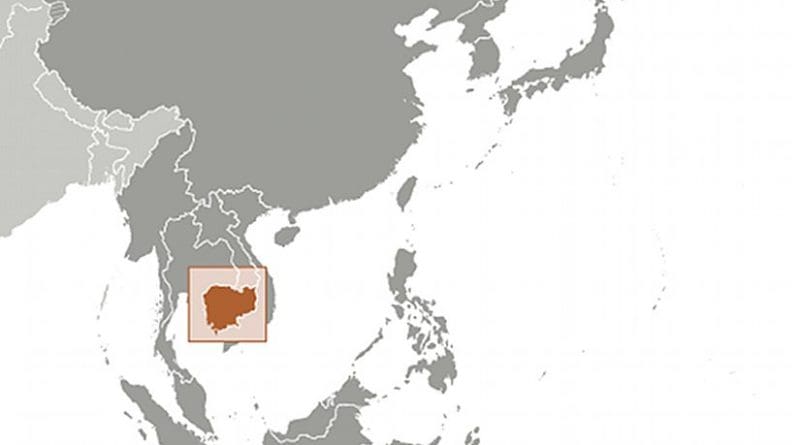Cambodians Hold Elections Amid Crackdown On Dissent
By UCA News
By Luke Hunt
Cambodians go to the polls June 4 to elect more than 12,000 district officials following a campaign marred by threats of war, the jailing of opposition supporters and an economy that’s struggling to cope with job seekers.
Importantly, commune elections are a key indicator for the ruling Cambodia People’s Party (CPP) that performed poorly at national elections four years ago after the youth vote sided with the opposition and sharply reduced the government’s number of seats in parliament.
Since then, defamation laws have been criminalized and supporters of the Cambodian National Rescue Party (CNRP) jailed.
Those laws forced CNRP leader Sam Rainsy into early retirement and Kem Sokha, his former deputy is now in charge. A solid performance this weekend will improve his chances of becoming prime minister at national elections due mid next year.
CNRP parliamentarians have also been bashed and a prominent political commentator, Kem Ley, was gunned down in broad daylight last year. Media outlets have been told they will be closed if they fail to obey election guidelines.
The government insists opposition supporters are not being targeted for political reasons but rather the police and courts were holding lawbreakers to account. Others have doubts.
Post-war baby boomers have emerged as a major political demographic in recent years. They are better educated and demand better paid jobs. Unlike their parents, they do not support Hun Sen en masse just because he ended three decades of war in 1998.
That could be behind his threats of war, recently repeated before an audience of 4,000 Cambodian Christians, telling them: “The only option is that the CPP must win elections at all stages … to ensure the lives of millions of people, we are willing to eliminate 100 or 200 people.”
Relations between the government and the major religions here — Buddhism, Islam and Christianity — are solid but those at the Christian rally were wary.
“It was a big threat, a very big threat,” said Sunny Amjad, activities coordinator at St. Joseph Catholic Church in Phnom Penh. His sentiments were echoed by Thai Pahna, a catechism instructor and a spokesman for St. Joseph’s.
“The election means so much for Cambodians and for me. Though we are Catholic we must go and vote, in support of the country,” he said.
“I cannot say what will happen in the future but I don’t fear an outbreak of war. It does instill fear in my parents as they are old and have faced the hardships of the past but to me it is just a political message reminding us that war once happened,” he said.
Cambodia is overwhelmingly Buddhist and that can influence politics here. Four monks were briefly detained last weekend by police with electric batons after urging voters not to support political parties that use intimidation to pressure voters.
“Relations between the government and religion are excellent but there are concerns, including illegal Vietnamese immigration and de-forestation,” Thai Pahna said. “Change is also good for democracy and we hope to see some new faces in the communes.”
Mu Sochua, a senior CNRP figure, said the advent of social media and access to independent information had undermined threats of war among the nation’s youth who are more concerned about the country’s faltering economy.
Cambodia has relied heavily on China to bolster its economy in recent years but a massive blow out in debt and a slowdown in industrial output has caused the People’s Republic to stumble on the financial front, casting doubts over aid and investment here.
Despite the slowdown, government spokesman Phay Siphan was confident the CPP would perform well at the June 4 commune elections.
“Everywhere we go the people; they cheer us, even in the remote villages,” he said.
Mu Sochua expects the CNRP to win 60 percent of the overall vote up from 30 percent in 2012. Analysts said the CPP would be happy to limit any swing against it to 10 percent after winning 60 percent of the overall vote four years ago.

